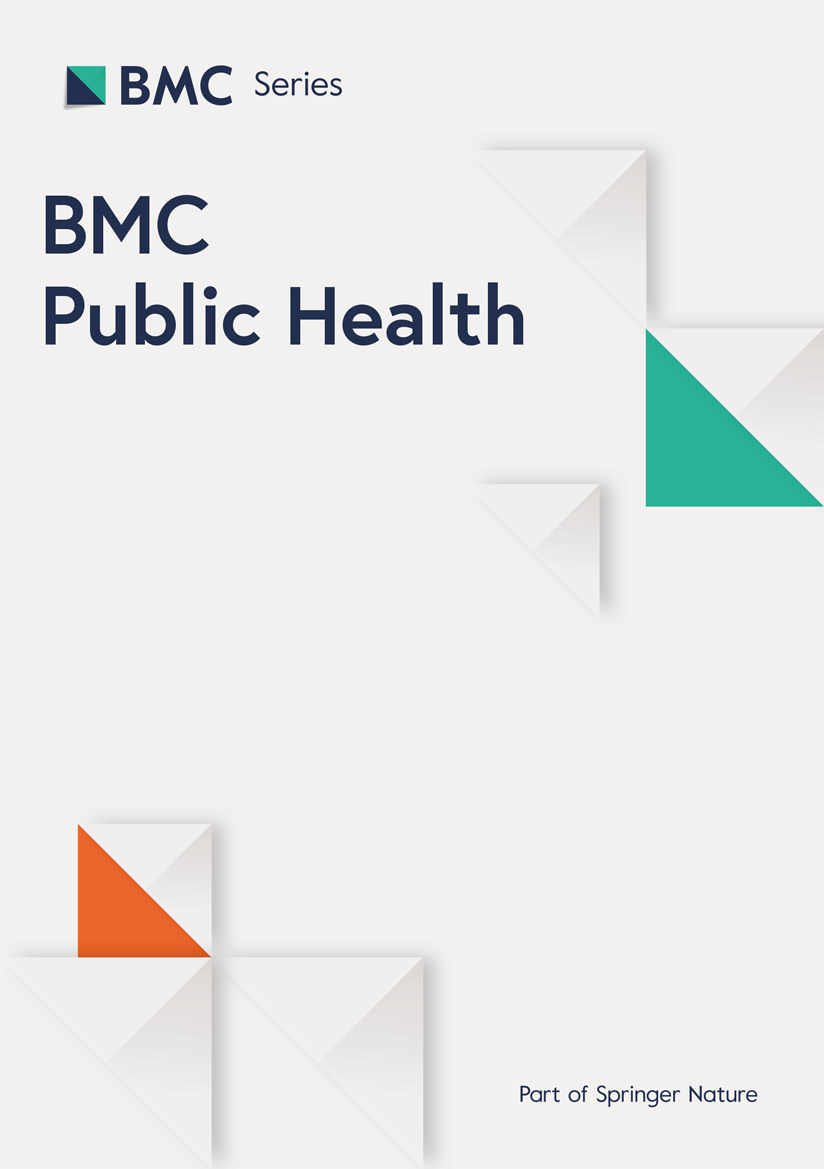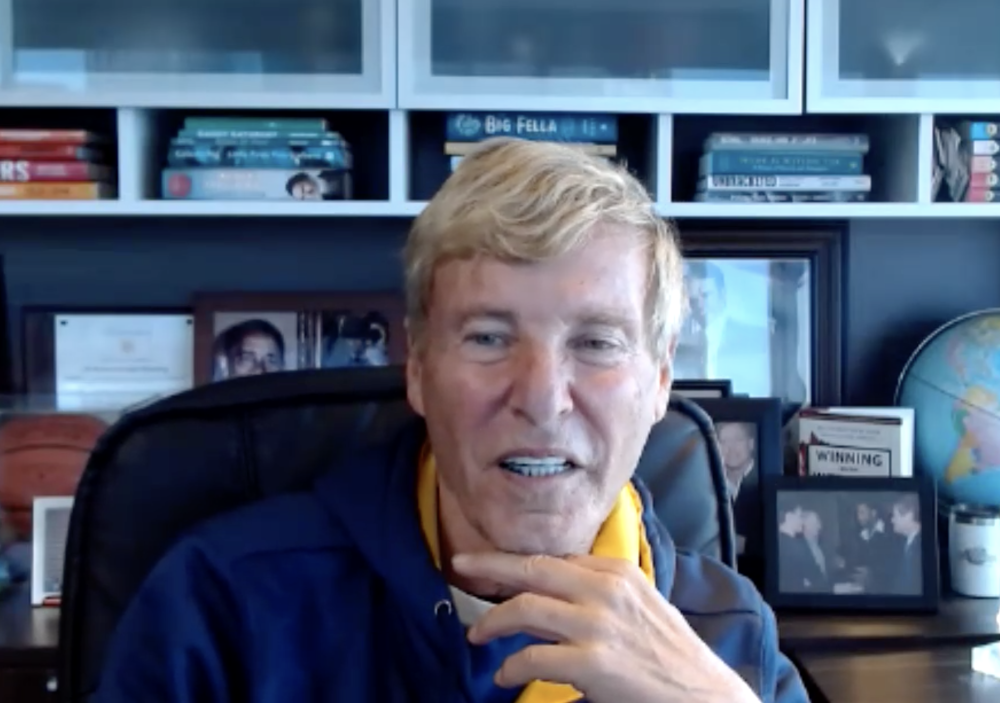Gambling
Changes and continuities in gambling careers during the COVID-19 pandemic: a longitudinal qualitative study of regular sports bettors in Britain – BMC Public Health

Table 1 shows key characteristics of the achieved sample in 2020 and 2021.
While PGSI scores are indictive of problem gambling severity, misclassifications can occur [32]. For example, in this sample one participant who scored ‘0’ on the PGSI described recurring problems with gambling (e.g. difficulties controlling gambling behaviour) and some negative consequences of gambling (e.g. financial losses) during the interview. This highlights the importance of participant accounts in providing a more complete understanding of gambling behaviour.
The most common pre-pandemic sports betting activities mentioned were gambling on football and horse racing. Several participants also participated in other forms of gambling pre-pandemic such as casino gambling, lottery, scratch cards, and fixed odds betting terminals.
The pandemic affected participants’ gambling behaviour in a number of ways and, as others have reported in non-COVID-19 times [16], changes in gambling behaviour and people’s gambling ‘careers’ varied between individuals and over time. Fluctuations in levels of gambling on one or more activities were frequently discussed in participant accounts: it was common for there to be times during the pandemic when an individual described increased gambling and other periods when they said that their gambling decreased. Thus, participant accounts highlighted the fluidity of gambling behaviour in the context of the dynamic circumstances in which people were living during the pandemic. Despite this, only three participants were re-classified into different PGSI categories between the initial and follow-up interviews (one participant’s PGSI classification increased in severity and two decreased).
In the next sections, we describe and explain continuities and changes in gambling behaviour during the pandemic in more detail. We have grouped factors into two distinct, but interrelated themes identified from the accounts of our sample of regular sports bettors: ‘changes to the gambling and the sports landscape’ and ‘COVID-19’s impact on day-to-day life’.
Changes to the gambling and sports landscape
Disruption to the sporting calendar and sports betting opportunities
Participants frequently reported stopping gambling altogether or decreased gambling around the period of major sport shutdown during the initial ‘lockdown’ in spring 2020 across the UK and Europe (01-2020-NPG: I just don’t remember betting at all [during the early lockdown] …There was nothing to bet on). However, all of those who reported stopping at this time had resumed gambling by the time of the first interview.
These reductions reflected some people’s reduced desire and interest to gamble on the limited opportunities that were available, or decreased desire to gamble in general:
04-2020-NPG: …to begin with, I was barely gambling at all during lockdown because there was nothing I was looking at that was worth betting on, because it was all like Indian cricket and stuff like that, stuff I have no idea over.
By contrast, other people (more often those at moderate risk of experiencing gambling problems or experiencing gambling problems) reported increased gambling and/or having concerns about gambling when major sport was suspended:
Int: during this initial lockdown…did you ever have any concerns about your gambling?
06-2020-NPG: A bit, yes. [I was gambling] normally every day and then realising, ‘hang on a minute, what am I doing?’ It’s only until you’re losing loads of money that you’re like, ‘…maybe I should just calm down a bit.’
The shutdown of major sports also contributed to an uptake of new sports betting activities by some participants, across PGSI groups. Examples included betting on different sports fixtures (such as Belarusian football league) or betting on new sports/e-sports activities (such as e-motor racing). Uptake of new sports betting activities was often temporary while more stringent COVID-19 restrictions were in place.
15-2020-NPG: We did find something [to bet on]. And actually this is pretty good, you could make this pay. On Sundays there were e-grand prix, sort of they’d have grand prix, with formula one drivers in simulators. And, one or two of the firms started betting on it, but they did not have a clue, they had no idea how, they literally were guessing at pricing up.
The return of ‘mainstream’ sport (such as English Premier League football and resumption of horse racing) in summer 2020 resulted in further changes in participants’ gambling activities as they were able to resume sports betting activities. For some participants, across PGSI groups, the return of sport after a period of major disruption provoked feelings of novelty, excitement and a heightened desire to gamble, which contributed to increased gambling:
16-2020-LRG: I think in the first couple of weeks the excitement of having the footie back and you just think “Right, let’s go for this, let’s go hell for leather!”
The novelty of being able to watch and bet on sports again led some participants to bet on fixtures they would not usually bet on, even if they ‘didn’t care about the outcome’(16-2020-LRG).
Changes in fixture scheduling during the pandemic, particularly in relation to football and horse racing which were two of the most popular sports to bet on amongst our participants, could lead to increases in gambling. Specifically, participants across PGSI groups explained how the compressed sports calendar created a plethora of opportunities for watching and betting on sports, which were less restricted to set days of the week and times of year as had been the case pre-pandemic:
10-2020-NPG: It went from famine to feast really, so there’s been loads of horse racing now, to watch, so it’s quite intense, following it at the moment.
05-2021-NPG: there were something almost every single day for a while, because…of the way that seasons were truncated, and then squashed together, and now everything’s been squashed together for the [football] World Cup coming up in 2022 and the Euros, there’s like football Monday, Tuesday, Wednesday, Thursday, Friday, Saturday, Sunday. You kind of almost don’t get a chance to have a break from it.
Other ways in which disruptions to the sporting calendar during the pandemic contributed to increased gambling included high numbers of sports events being televised, which was particularly significant for those for whom betting was bound up with watching a live event:
11-2021-MRG: I think the fact that you could watch all but essentially every single game, so the fact that people like myself…[who] only wants to gamble on what they can watch, logically that can increase the amount that I was gambling.
COVID-19 restrictions were also perceived to produce favourable betting odds for some fixtures e.g. because bookmakers struggled to account for any impact of the loss of live spectators in their setting of the odds.
11-2020-MRG: [there are] new opportunities in terms of like a chance to win money in ways that have not been won before because even the bookmakers are struggling to kind of figure out their algorithms for it [football fixtures].
However, disruptions to the sporting calendar, after the reopening of sport, could also contribute to decreases in gambling. For example, a participant who was not experiencing gambling problems explained how his gambling reduced once the ‘novelty’ of being able to bet on sports again had subsided:
05-2021-NPG: I…would have put on a few more bets because there was just more football happening, and it was just like day after day after day. But then again, that was just for a couple of weeks…it’s probably [because] the novelty wore off.
Another participant (13-2020-PG) who was experiencing gambling problems described a ‘massive disinclination’ to gamble when games were played behind ‘closed doors’: ‘it was just a massive turnoff.’
Closure (and reopening) of gambling premises and switching to online gambling
Participants, particularly those who had primarily participated in land-based gambling pre-pandemic, reported switching during the height of pandemic restrictions to online gambling products (such as online casino, online scratch cards and online bingo) or using online gambling products more than usual ‘because the stores were closed’ (08-2020-PG).
This increase in online gambling was associated with an overall increase in gambling activity for some participants. Several reasons were mentioned including the ease and convenience of online gambling, the ability to gamble anytime online, and having ready access to an extensive number of gambling products online (e.g. international sports events) while spending more time at home.
02-2020-PG: …my betting didn’t used to be as bad before the COVID, but see since March, when the [betting] shops closed, that’s when I went off the rails because I knew that I could just go online, just put money in my account, and just bet whatever I want….
The reopening of gambling premises provided renewed opportunities for participation in land-based gambling. For example, one participant said they were ‘much more likely to have a bet in a race’ when they were able to attend the racecourse and see the horses (10-2021-NPG). However, the perceived lack of atmosphere in betting shops (because of continuing COVID-19 restrictions) was a disincentive to others:
08-2021-MRG: So with the betting shops [before] COVID-19, things were good, but now there’s no one in a betting shop, there’s no game to play. It’s just gone downhill, like what is there to play, what is there to see…there’s no point in a betting shop.
No participants reported having fully returned to their pre-pandemic participation in land-based gambling because of factors such as ongoing restrictions during the fieldwork period, reduced appeal of land-based gambling during the pandemic and changes in personal circumstances.
Exposure to gambling marketing
Participants described varied levels of awareness of gambling marketing and differential impacts of exposures to marketing on emotions and behaviour during the pandemic. Among those not experiencing gambling problems, participants often said that they did not take a great deal of notice of marketing, and generally did not mention a negative influence on their behaviour.
In contrast, among those at moderate risk of experiencing gambling problems or experiencing gambling problems, some described feeling inundated by marketing, particularly direct marketing and promotions, during the pandemic, reportedly leading to harms. This included marketing from operators who they presumed were not licensed in Britain. High awareness of gambling marketing was reported by some people at risk of, or experiencing, gambling problems during the first lockdown, and, for some, awareness of marketing continued to be similarly high or higher in subsequent phases of the pandemic, reportedly contributing to further periods of increased gambling.
One participant (14-2021-PG) who was experiencing gambling problems highlighted how hard it was to self-manage their gambling behaviour in the context of reportedly predatory (‘they know that….[gambling] is a weakness of mine’) direct marketing during the pandemic. He went on to describe how, despite his considerable efforts to make it difficult or impossible for him to gamble, he ended up gambling again for a while in response to marketing texts:
14-2021-PG: I just think it was one text message too much.…I suppose if you tap away at a tree with a knife, a small knife, it doesn’t chop down at first but if you chop enough at it eventually you’re going to get the outcome you want.
It was evident that sometimes the nature of gambling marketing could be distressing, when participants experienced marketing as excessive or aggressive. For example, one participant who was experiencing gambling problems felt ‘pressure’ to gamble because of the ‘shocking’ volume of marketing sent to them by gambling companies (02-2021-PG), and another said:
08-2020-PG: It did bother me because I thought to myself, ‘I’m constantly being bombarded with emails with marketing information about betting and gambling’.
Promotions for online gambling (e.g. free spins or free bets), seen via direct marketing, online advertising or TV, were reported to have contributed to an escalation in gambling among some people at moderate risk of experiencing gambling problems or who were experiencing gambling problems. The man quoted earlier in relation to the switch from land-based to online gambling described how it was a free bets promotion that enticed him to open a new online account (because bookmakers were closed). This resulted in his gambling “going off the rails” because he deposited more money than he planned to spend to qualify for offers, and then tried to chase his losses:
02-2020-PG: I put the £10 on. I put that on a horse and then I put the three bets on something silly like virtual racing or something, but when I lost that…I used to say to my partner “I’m going to put more money on”. She went, “No!”. She tried to put me off by saying “You’ve already had two free bets…” and I used to sneak away and put money into my account….
The risks in being able to act immediately on gambling cues within marketing and promotions in the context of having to spend more time at home and feeling bored (see below) during the pandemic were well articulated in some participants’ accounts.
14-2020-MRG: “I’m not making excuses for myself, I kept seeing adverts, I kept…and one evening was just terribly bored, opened [online] account up with [gambling company] and, yeah, just sat there and barely even…[I] went to work with about three hours’ sleep because before I knew it was two o’clock in the morning, yeah, just because think it was constantly in front of me.
Some people who were not experiencing gambling problems or who were at lower risk of experiencing gambling problems said that exposures to gambling marketing while watching live sports events on TV, or receiving mobile phone notifications from gambling companies, had prompted increased interest and participation in sports betting on occasions during the pandemic. For example, participant (16-2020-LRG) reported an ‘uplift’ in his gambling because ‘every other advert [was] a betting advert’ immediately following the return of live sports events.
In contrast, not being exposed to as much gambling marketing and gambling cues as usual during the initial lockdown, because of changes in his daily routine, helped another participant experiencing gambling problems to cease gambling for a period.
In some cases, gambling marketing and promotions influenced individuals to start new gambling activities during the pandemic, sometimes contributing to higher gambling participation:
09-2021-MRG: [I participated in] online bingo. Which I decided to try, because there was, you know, I think, free…five free cards of bingo or something like that, so I decided to try it.
COVID-19’s impact on day-to-day life
The pandemic caused major disruption to day-to-day life, which influenced changes in some people’s levels of gambling, particularly during the initial 2020 lockdown when sporting events were suspended and to a lesser extent during subsequent lockdowns in 2020 and 2021, during which sporting events continued.
Work and occupying time
Some participants across PGSI groups described how disruptions (such as having few ways to occupy time, being out of work or ‘furloughed’ or having reduced work) had contributed to increased gambling:
09-2021-MRG: A lot of the reason [for gambling] was because I was stuck inside, and it was winter, there was nothing to do, it was lockdown.
07-2021-MRG: But through the summer it was kind of extensive because there wasn’t anything else to do at all, so it kind of got a bit bigger at the end compared to what it had been.
Spending more time at home during the pandemic had enabled some people to (markedly) increase time spent watching and betting on sports:
01-2020-NPG: I have more time to spend on doing race cards and what have you. Before the lockdown, I would sort of scramble off maybe one card before I had to go and do something else. I’ve had a lot more time to sit around.
Some people reported that their gambling decreased after resuming parts of their usual routines during periods when COVID-19 restrictions eased and they consequently had less time or inclination to watch sport and gamble.
12-2020-MRG: I have got a lot going on in my life, in terms of, I do have a lot of hobbies, and I’ve got a lot of work, and do go to the gym and stuff, so I don’t really need to fill my time up with things like that. So, now we’ve got more things to do, I don’t really fill my time doing it, to be honest.
Similarly, gambling also sometimes decreased following important life changes which occurred during the pandemic, such as becoming employed or changing jobs.
10-2021-NPG: When I went back to work [after a period not working in the early pandemic] it [gambling] became less because obviously I now can’t watch as much [horse racing] so, I would say, it’s probably been a bit less since then…my new job has been pretty busy and a bit sort of like, well, I’ve got enough to be dealing with today. I haven’t got enough head space to, sort of…you know, or time to look at the races.
Gambling emotions, and coping strategies
Increased gambling was also influenced by negative emotional responses to the pandemic and associated disruptions to daily life. Boredom was seen as being an important precipitator:
03-2021-NPG: There probably has been a lot more boring weeks than before. It [gambling] probably has been a wee bit more.
Low mood and stress related to the course of, or reactions to, the pandemic were also mentioned as factors which sometimes contributed to increased gambling during this time:
02-2021-PG: I don’t like being off work, I’ve got to be at work all the time…I just couldn’t hack the lockdown, for some apparent reason. And that’s when I [used] my online betting app. I just, I was just betting silly amounts of money.
A participant at low risk of experiencing gambling problems described how a period of increased gambling during the initial lockdown was linked to feelings of having fewer professional and social responsibilities because of COVID-19 related changes to his routines. These responsibilities had previously helped to curb his gambling:
16-2020-LRG: …that first month [of lockdown] where everything has changed, everything was completely different and it almost felt like I didn’t have any responsibility because work was drying up, it didn’t feel like I had any responsibility to my girlfriend necessarily, because I’d talk to her and it would make me feel better about certain things, but I wasn’t seeing her. I wasn’t seeing my family or anything like that, so it felt like “strip everything away and just do what you want to do!”.
For some people who gambled more during various stages of the pandemic in 2020 and 2021, sport and gambling were, at times, associated with positive feelings, such as anticipation, excitement, pleasure, relaxation and escapism, and so appeared to be used as a means of coping with disruption caused by COVID-19 restrictions or filling time:
01-2021-NPG: I wonder whether I’d have felt much more adrift without the horseracing on TV….in that it gave me something to do. Something to do in the morning first thing and then throughout the afternoon. So it took up…it takes up quite a bit of my time. So it filled the gap for me I think.
Restrictions to activities outside of the home during pandemic restrictions sometimes removed the option to engage in alternative coping strategies or displacement activities:
14-2021-PG: So, yeah, I mean, like I said, little things like the gym not being open anymore. The gym is good for me as well because an hour and a half of my time where nothing else in the world matters. You’re in the gym, it could be anywhere, an hour and a half goes like that in a gym.
Conversely, the disruption to day-to-day life caused by the pandemic also sometimes contributed to decreased gambling when participants found other ways to occupy time such as gardening, physical activity or spending time with a partner.
13-2020-PG: …it’s…because it [pandemic] restricted my choices I had do you think, “Right, what else can I do? How else can I get my kicks?” And I found I did it through exercise.
Social networks
Social networks were a contributory factor in some accounts of gambling change during the pandemic. Some younger participants described a greater reliance on gambling for social connection during the pandemic, which contributed to increased gambling:
12-2020-MRG ….was playing quite a bit of poker as well, cause that was the only thing that you could really do with your friends, like, you could all join the same sort of games online….
Social influence from online gambling communities or family members could encourage increased gambling, or uptake of new gambling activities:
09-2021-MRG: my brother started to bet on horseracing, and then I had some free bets for horseracing, so I started doing that. And I used to do it probably like every other day, just because there were races on all the time.
Social isolation, alongside boredom as discussed earlier, was another contributory factor to increased gambling:
09-2021-MRG: sometimes I just get a bit self-isolated and bored by myself, that’s when…because it passes the time, I do it on the computer.
In contrast, spending less time with peers in gambling environments (e.g. pubs where football games are being shown) or changes in social networks could lead to decreased gambling:
03-2020-NPG: I don’t see my friends as often, so I think that’s what probably drove it down as well a bit. Like, I imagine when the lockdown lifts…’cause I’ve been living away from [city] where most of my friends are, even then I still haven’t seen them much. But I think if I was sitting in the pub with them on a Saturday or whatever day and there was football on, I’d probably end up putting a bet on.
Financial circumstances
Changes in people’s financial circumstances could influence their gambling behaviour during the pandemic, across PGSI groups. Some people’s gambling increased following improvements in financial circumstances (e.g. getting a pay increase or a windfall) or reductions in outgoings due to changes in day-to-day life and not being able to go out due to the pandemic.
11-2021-MRG: I would say it [gambling] probably went up during the pandemic…I think my gross spending on frivolities, for want of a better word, probably went up in general I think because of the fact I wasn’t going to the pub…and I think there probably was an element of, “I’m not going to a football match…”.
Another participant explained how he had gambled more during the initial lockdown to try to supplement his reduced income:
08-2020-PG: I couldn’t make enough money, you know, to pay out my bills or, you know, to pay out all my daily expenses or, you know, my other living costs…so I thought to myself, what is another option…I’ll do this [gambling] and see if I can make a bit [of money].
Conversely, reductions in income, increases in outgoings or changes in spending priorities could led to decreased gambling:
09-2020-MRG: I didn’t have the finances to do it [gamble], because I was transferring from furlough [temporary paid leave] to starting to work again. So I just didn’t have the finances.
Multifactorial influences on gambling behaviour during the pandemic
Taken together, evidence from the interviews suggests that it was common for a constellation of factors to influence gambling behaviour rather than a single factor. The constellation of factors could vary from person to person and at different times during the pandemic. Likewise, the same factor could have a different impact on the gambling behaviour of one person compared to another. Thus, respondents’ own narratives suggested that attributes, events and circumstances which were protective for one person could place another person on an apparently riskier trajectory.









:focal(0x0:3000x2000)/static.texastribune.org/media/files/9f9df5d8e38e56397be7f883cd61490a/1230%20Migrant%20Workers%20SB%20TT%2009.jpg)